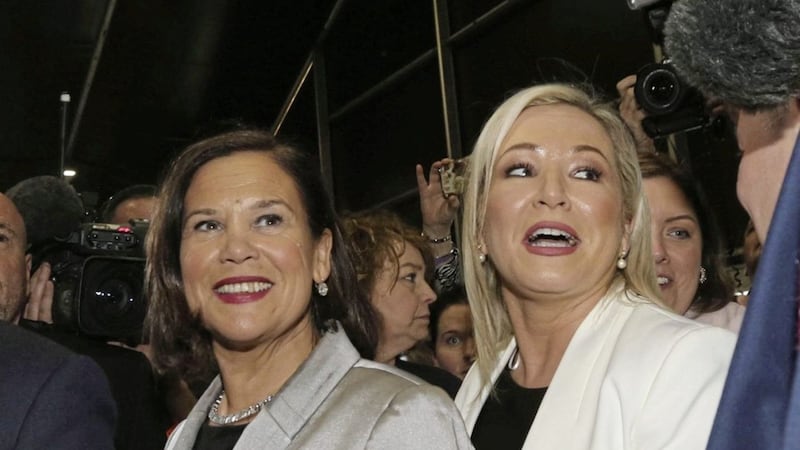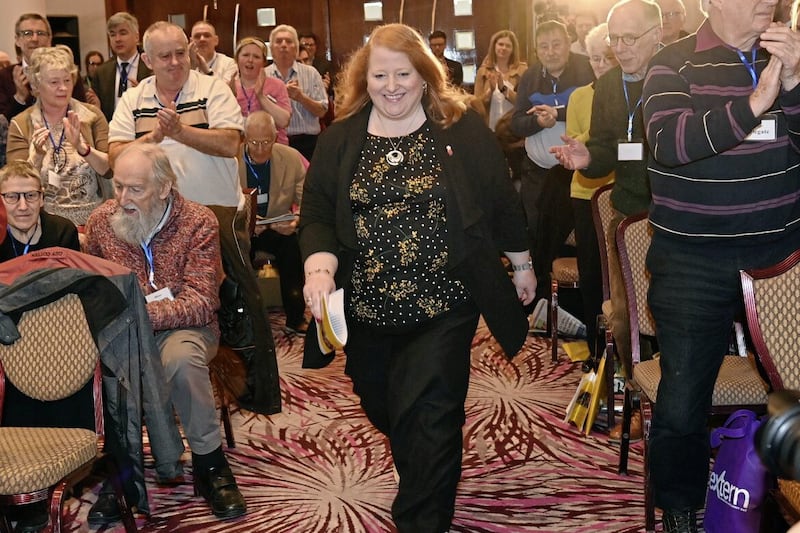IT was trailed as an election that would see big changes and in many regards it lived up to the billing.
Yet it didn't pan out quite the way many had envisaged.
Sinn Féin look set to emerge as the largest party by some distance. Its vote has held up and in some places increased, an extraordinary feat for a party that's been in power for a decade-and-a-half and conducted a rather unorthodox, low key campaign.
To be fair, Sir Jeffrey Donaldson and the DUP did much of the heavy lifting on behalf of its main nationalist rival. Sustained whining about the protocol and talk of 'Sinn Féin's divisive border poll' acted like a slow-burning crocodile moment, a battlecry that backfired spectacularly in terms of propelling Michelle O'Neill to the first minister's post.
However, while the inadvertent consequences of the DUP strategy are clear, it's possible that this tactic actually saved the party from deeper humiliation.
Sir Jeffrey Donaldson's party fared better than polling indicated but in terms of actual votes, the DUP shed almost 30 per cent of the support it secured in 2017, its share of the vote falling back by 6.7 percentage points.
Its strategy is neither validated or entirely discredited.
Sir Jeffrey inherited a mess and, given the worse case scenario many predicted, he has arguably played a comparatively poor hand well.
That said, the big beast of Stormont politics is wounded, if not fatally. Support for the party that has effectively dominated regional politics for almost two decades has slumped, its votes migrating primarily to the TUV.
Yet the DUP remains a substantial force and between them the two hardline unionist parties still represent a significant cohort. Jim Allister surely feels vindicated and reinvigorated in his campaign to kill off the iniquitous protocol.
While Sinn Féin was the undisputed victor, Alliance will no doubt cast itself as the election's winner.
Its first preference votes didn't match the dizzy heights predicted in opinion polling but Naomi Long's party was forecast to pick up additional seats through transfers.
Its success has come at the cost of the SDLP, the Greens and to a lesser extent the Ulster Unionists.
The middle ground was where the election's fiercest fights took place. The so-called moderates present themselves as friendly and polite but this contest demonstrated that politics is a ruthless business during which ideological nuance morphs into antipathy and diametric opposition.
Alliance's tally of MLAs is impressive and it has helped secure the middle ground's position as the new bloc on the block.
Nevertheless, it still lags behind the DUP by a considerable margin. The Alliance surge illustrates that politics is changing but perhaps not as seismically as some commentary would suggest. Meanwhile, the demise of the Greens arguably represents a displacement of centre ground votes rather than growth.
The vista greeting Colum Eastwood this morning is without doubt a grim and dispiriting one.
The party's vote held up in Foyle but it lost a seat in South Down and was last night contemplating potential losses in East Derry, Upper Bann and most significantly North Belfast, where deputy leader and Infrastructure Minister Nichola Mallon is facing elimination.
Its hope that the losses could be offset with gains elsewhere proved misplaced. It's unclear how the party that once commanded majority support within nationalism recovers from this historic low point. Its success in the Westminster election of 2019, albeit helped in part by a pact, was thought to signal a renaissance but it has turned out to be dead cat bounce. Likely to be excluded from the executive on a numerical basis, the rebuilding must begin in opposition.
The election played out a little better for the Ulster Unionists, whose first preference vote tally dropped by 1.7 percentage points compared to the SDLP's slippage of 2.9 percentage points. However, the likely loss of leader Doug Beattie in a constituency once regarded as a UUP stronghold poses existential questions for a party that must now be contemplating a change of leadership for the fifth time in five years.
For months, a post-election negotiation has been inevitable. In the coming days we will see how this result, and in particular the drop in DUP support, feeds into this process.
The unionist electorate seems ambivalent about its representatives' pre-occupation with the protocol, while nationalism suspects the ardent opposition to returning to the executive without changes to the Irish Sea border, merely masks the DUP's reluctance to accept a Sinn Féin first minister. The public are unlikely to tolerate a long lay-off for Stormont, every month of dormancy undermining the credibility of the devolved institutions.
The people have spoken now it's the politicians turn to start talking again.








